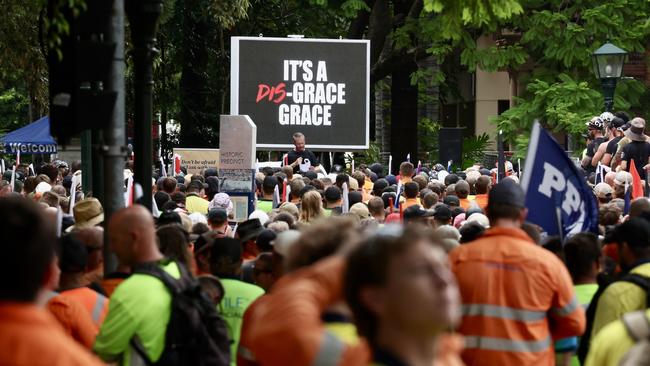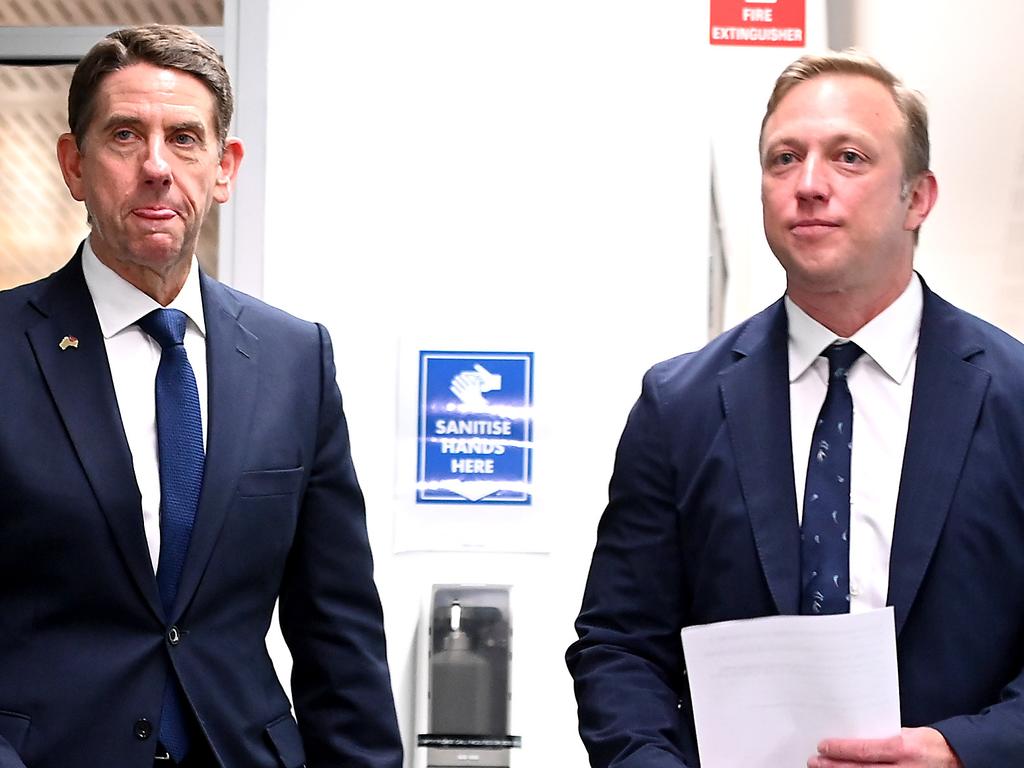Union deal gives big perks to Queensland construction workers but drives up costs
A deal between Queensland unions and the state Labor government has driven construction costs up 20 per cent and is crushing private housing development, the building industry has warned.

A deal between Queensland unions and the state Labor government has driven construction costs up 20 per cent and is crushing private housing development, the building industry has warned.
The state government’s Best Practice Industry Conditions – dubbed the “CFMEU tax” – forces contractors tendering for major government-funded projects to negotiate agreements with unions and sets a high floor on conditions, including double pay when it rains and up to $1000 a week for workers who travel more than 50km to a site.
The BPIC, published by the Miles government last month, sets successive 5 per cent pay increases each year until 2027 and 300 per cent loading for working on and between Christmas Day and New Year’s Day or Good Friday and East Monday.
Workers using their own mobile phone will be paid a “technology allowance” of $100 a week and all work will cease if temperatures reach 35C, or 29C and 75 per cent humidity in southeast Queensland.
Queensland Major Contractors Association chief Andrew Chapman said BPIC were hiking up costs and crippling productivity.
“It basically means we are delivering far less for far more,” he said. “Directly from BPIC, we are seeing construction costs up 10 to 20 per cent. Supply and demand should be dictating wage rates – governments should not be interfering in that.”
Steven Miles, who was installed as Premier in December as part of union deal, said the state was “paying what it costs to get the workers to deliver the projects that Queensland needs”.
“The terms and conditions in the BPICs represent the prevailing EBA rates in the industry,” he said.

The release of the new BPIC standard comes as housing, Olympic, renewable energy, transport and hospital building projects are competing for workers, with Queensland’s capital spend per capita expected to overtake that of NSW and Victoria next financial year.
Developers have had a difficult time finding tradespeople when competing with major state projects that offer attractive conditions under BPIC.
Housing Industry Association Queensland chief Mike Roberts said the state government had “no hope” of meeting its ambitious housing targets while BPICs continued to have influence over the construction industry.
“The unintended consequence of BPICs has meant the costs and timeframes of delivering high-density residential projects has blown out to the extent that projects are no longer viable,” he said. “The real impact is the loss in productivity. It’s not only the direct costs of having to pay workers more, but it is taking projects 30 to 40 per cent longer to be completed so you are paying those higher rates for an extended period of time.
“It is in their (the unions) interest to drag projects out because their workers get paid these very generous rates for longer.”
Master Builders Queensland chief Paul Bidwell said his concern was not about increased wages but time loss because of clauses in BPICs, including one that gives workers a rostered day off every 10 working days.
“(On BPIC projects) it is about a one third loss in productivity, it takes a third longer and that has a direct impact on cost to taxpayers,” he said. “The government has acknowledged we need to build more … it has to pull the levers it has at its disposal.”
CFMEU state secretary Michael Ravbar said BPIC projects were better regulated and hit back at the Master Builders Association and other groups that criticised the policy.
“Their race to the bottom only ever leads to less safety, lower wages, more exploited visa workers and cheap imported building products,” he said. “We make no apologies for backing Queensland construction and manufacturing workers.”







To join the conversation, please log in. Don't have an account? Register
Join the conversation, you are commenting as Logout